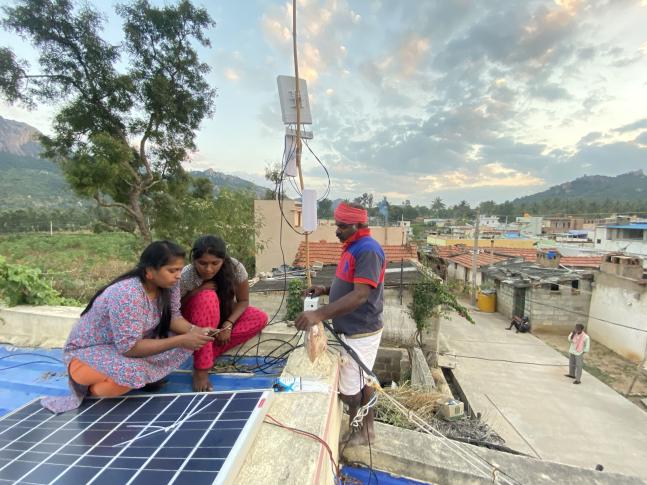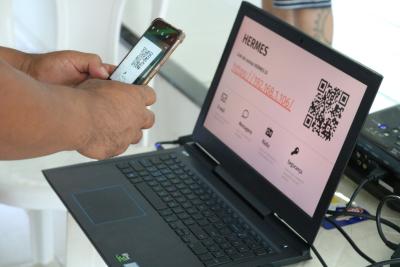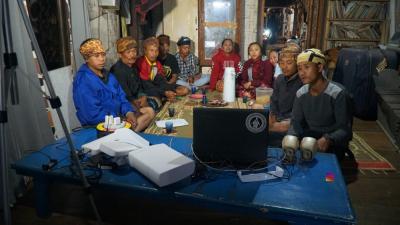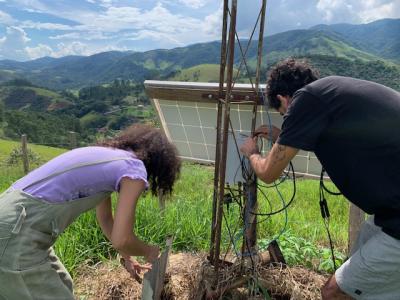
The initiative
“Connecting the Unconnected: Supporting community networks and other community-based connectivity initiatives” is a project being implemented by APC in partnership with Rhizomatica that aims to directly support the development of community networks, with funds from the Swedish International Development Cooperation Agency (Sida).
This project builds on APC’s existing local access-related work currently being implemented with Sida’s core support, and the knowledge gained from the Local Access Networks research project implemented by APC and Rhizomatica, with support from the International Development Research Centre (IDRC), during the period August 2017-January 2019.
The ultimate aim of this two-phased project is to contribute to an enabling ecosystem for the emergence and growth of community networks and other community-based connectivity initiatives in developing countries. It is part of a multi-year, multi-donor initiative envisaged to address the human capacity and sustainability challenges, along with the policy and regulatory obstacles, that limit the growth of community-based connectivity initiatives.
Phase 1 (2018-2019)
Despite the rapid uptake of mobile phones, the connectivity divide between rich and poor countries and between urban and rural areas is increasing. There continue to be heavy infrastructure investments by national commercial operators in urban areas and in more wealthy countries, while rural areas and poorer countries are unlikely to be serviced with similar financing. As a result, bringing the economic and social benefits of good communication to all citizens continues to be a serious digital exclusion issue faced by most countries, with connectivity in rural areas likely to develop at a much slower pace, if at all.
Alternative communications infrastructure solutions are therefore being explored by an increasing number of stakeholders. Among them are community-based connectivity initiatives which are locally driven, bottom-up responses to the current digital exclusion challenge. Using available low-cost networking equipment – in the countries where this is allowed – a small but growing number of communities and small-scale operators are providing people living in rural areas with affordable voice and data communications.
The key objectives for this first phase of the project were:
-
Strengthen the community network movement through grant support, peer learning and capacity building.
-
Enable the establishment of new community networks through awareness raising and movement building.
-
Support innovative technology use and approaches that enable scaling and sustainability of community networks.
-
Contribute to an enabling policy and regulatory environment for local access at national, regional and global levels.
-
Integrate gender analysis into all aspects of project implementation and support women’s participation in community-based connectivity initiatives (cross-cutting objective).
This project's objectives were achieved through peer learning and exchange, awareness raising and capacity building to enable the creation of scalable, innovative and sustainable networks, while contributing to the development of an enabling policy and regulatory environment.
The 2019 project focused on 12 locally managed community networks in Africa, Asia and Latin America (four per region) to strengthen their impact, reach and sustainability. Travel exchanges enabled mainly rural community network partners to meet and visit each other for the first time, providing mutual learning, trust and support. For example, there were peer-to-peer collaborations, such as solving solar issues and learning about the cooperative model in one visit. This initial group of community networks formed the core of a peer community that contributed to connecting and broadening understanding and support for community-based connectivity initiatives, both nationally, regionally and internationally.
A solid body of knowledge and learning was created on the factors that inhibit or encourage the existence, development and scaling of community networks in a wide variety of different contexts. Alongside this first phase activity there was consistent engagement with regulatory agencies in Africa and Latin America which led to the creation of a convincing narrative on the need for a more enabling regulatory framework. APC’s engagement included participation in more than 20 regional and global forums and hosting four training workshops for over 100 telecom regulators and government officials.
APC contributed to public submissions on access-related policy and regulatory processes nationally and regionally, increasing understanding of a people-centred perspective on access. Aside from policy events, awareness raising was strengthened through working with regional and global alliances of community networks (which included APC’s members and partners) and over 200 local access practitioners and advocates through at least 15 networking and collaboration opportunities, including three regional community network summits and 12 national multistakeholder events.
The monthly publication of the Community Networks and Local Access newsletter became a key awareness raising reference for actors working on and interested in the topic.
Through direct support and mentoring, 11 catalytic interventions on developing adaptive and innovative mechanisms with aims of sustainability for community networks were deployed in 2019.
On the technical front, the project’s interventions contributed to improvements to five specific areas: open source hardware designed for community networks; explorations of equipment sources into fourth generation – Long Term Evolution wireless communications (4G-LTE); examination of local content and offline services; communications in very remote areas, i.e. use of high frequency (HF) radio in the Brazilian Amazon; and alternative energy use and power protection.
Through the field trips, discussions on what the Feminist Principles of the Internet mean to access, promotion of and support for the participation of women, a special issue of the GenderIT.org newsletter, and capacity building efforts, the project contributed towards the initial steps in integrating gender analysis within project implementation and the emergence of a support network of women working in this field.
It adopted human rights-based and gender equality approaches, with a special emphasis on women-led initiatives and integration of a gender perspective at all levels of project conceptualisation, planning and implementation. In addition, an ecosystem approach that integrates participation and ownership of project participants was used to ensure sustainability beyond the life of the project.
Phase 2 (2020-2023)
From this baseline, the second phase of this project – aligned with APC's four-year strategic plan cycle from January 2020 to December 2023 – aims to continue the work in addressing the human capacity and sustainability challenges, along with the policy and regulatory obstacles, that limit the growth of community-based connectivity initiatives.
The project will primarily focus on creating the outcome that people affected by exclusion, discrimination and inequality are able to meaningfully use and shape the internet and digital technologies to meet their specific needs. The outcome comprises the following impact objectives:
-
Diverse communities and movements are interconnected and mobilised through shared knowledge, platforms and collective action.
-
Free, open and sustainable digital technologies and platforms are developed, shared and used to address digital exclusion.
-
Inclusive, fair and just economic models aimed towards digital inclusion are recognised, enabled and adopted as viable sustainable solutions for universal, affordable access and services.
-
Individuals and groups, in particular women, who champion digital inclusion have increased capacity and resources to create and meet the demand for alternative models.
The project will achieve its objectives through activities of supporting institutional strengthening, peer learning and exchange, awareness raising and capacity building, supporting innovation and sustainability in catalytic network deployments, contributing to the development of an enabling policy and regulatory environment, and support for gender-aware practices and increased women’s participation in network design, management, operations and use.
The second phase of the project will continue to be guided by a human rights-based approach. In addition, there will continue to be special emphasis on women-led initiatives, and integration of a gender perspective at all levels of project conceptualisation, planning and implementation. Mutual partnerships will continue to be nurtured, such as the existing relationship with the Internet Society in place since the beginning of this initiative.
Collaboration during the first phase included synergistic work on the 2019 regional community network summits, co-hosting events that promote an enabling environment for complementary models of access, and notable publications on spectrum and policy. Other partnerships such as with DFID, UNHCR and the 48percent.org foundation, among others, will also be pursued.
Finally, an ecosystem approach that holistically integrates participation and ownership of project participants has been adopted to help ensure sustainability beyond the life of the project.
Meet the selected community networks in Africa, Asia and Latin America that received learning grants and their representatives here.
Meet the catalytic intervention for a more sustainable community network environment grants recipients and their representatives here.
Local Networks 2021 grants: Meet the projects selected to strengthen community networks in Asia, Africa and Latin America here.
Subscribe to a monthly newsletter with news and information around community networks and local access and read the previous editions.
Read more about our previous project on local access and community networks here.
Read APC's content related to community networks here.
Image: Janastu.







